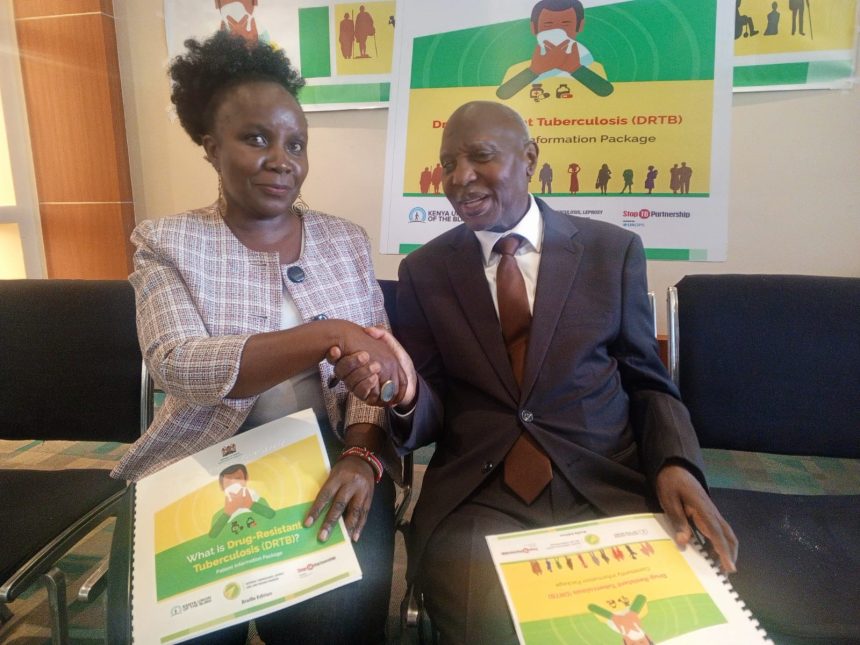On Tuesday, Kenya launched TB information, education, and communication (IEC) materials in braille for the visually impaired, coinciding with the International Day of Persons with Disabilities (IDPD) celebrated on December 3, 2024.
This year’s theme was “Amplifying the leadership of persons with disabilities for an inclusive and sustainable future.”
The Union of the Blind (KUB), supported by the Stop TB Partnership Kenya and the United Nations Office for Project Services (UNOPS), recognized the importance of creating an inclusive healthcare system that aligns with the health sector’s goal of ‘leaving no one behind’ to achieve effective health interventions.
During the meeting, stakeholders acknowledged the unique challenges faced by persons with disabilities (PWDs) in accessing healthcare services. Evaline Kibuchi, the Chief National Coordinator of Stop TB Partnership-Kenya, pointed out that PWDs often experience limited accessibility and geographical isolation, particularly those with mobility disabilities, who struggle to reach public places.
Dr. Chomba Munyi, Chairman of the Kenya Union of the Blind (KUB), noted that “persons with disabilities, including those with visual impairments, face unique vulnerabilities to diseases. Barriers to accessing information, stigma, and inequitable healthcare systems disproportionately expose them to TB infection and hinder their ability to seek timely care.” He further noted that the intersection of TB and HIV amplifies these vulnerabilities, as individuals with disabilities often lack sufficient support for prevention, diagnosis, and treatment.
The launch of IEC materials will significantly address these gaps. These materials will empower visually impaired individuals with the tools they need to protect themselves and their communities, enhancing their voices and leadership in the fight against TB.
“Today, we take a step toward inclusion and equity, a step that recognizes the leadership and agency of persons with disabilities in driving transformative change in healthcare, particularly in the fight against TB and HIV,” stated Dr. Chomba.
Dr. Chomba acknowledged that while progress is being made, much remains to be done to address challenges faced by PWDs. He called on the Ministry of Health to include disability in all health-related policies.
“I urge the Government of Kenya, through the Ministry of Health, to ensure that disability inclusion is embedded in all TB and HIV policies and programs. This includes making healthcare services physically and socially accessible and equipping healthcare workers with the skills to provide disability-sensitive care,” he pleaded.
Evaline Kibuchi advocated for increased inclusion of persons with disabilities (PWDs) in decision-making, highlighting communication barriers as a significant obstacle.
“Access to braille and sign language interpreters is a challenge because of the financial implications. How many healthcare workers understand sign language? How many are trained in braille?” she questioned, noting that limited educational opportunities and training for PWDs further hinder their employment prospects.
Dr. Chomba called on the government, development partners, and the private sector to increase funding for disability-inclusive TB and HIV programs.
Making TB information accessible to visually impaired persons will empower individuals with the knowledge to make informed decisions about their health, thereby strengthening the collective fight against TB and HIV.





